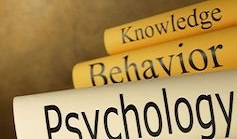

Note: Please check your Spam or Junk folder, in case you didn't receive the email with verification code.
Linear: Sequential Order
Cognitive Behavioral Therapy (CBT) is a psychotherapeutic model that aims to change dysfunctional emotions, ineffective behaviors and thought processes through a number of goal-oriented, and systematic procedures. Cognitive Behavioural therapy is evidence based and has been researched extensively. In children or adolescents, CBT can be effective for depression, anxiety disorders; body dysmorphic disorder; eating disorders, obsessive–compulsive disorder; and post traumatic stress disorder. This 3 month course in Cognitive Behavioural Therapy has been developed to help students gain knowledge and understanding of the cognitive behavioural approach to therapy. It will provide foundation knowledge and skills principles of CBT as well as the appropriate use of Cognitive and Behavioural interventions.
● To live a fulfilling and happy life, and reach your true potential, you need to have a high level of self-awareness. Unfortunately, self-awareness isn’t taught in most educational institutes, and many people struggle to obtain it.
● This course aims to simplify self-awareness and demonstrates how you can extend this knowledge to others.
● This extensive training is fitting for newcomers and professionals, who want to renew their skills. This course will present you with all the information you need to change peoples self-perception and support you In developing a new career path in the process.
● You will gain lifetime access to all modules (over 36 hours) of on-demand video teaching, and a wide range of additional course resources that you
● Support people to identify new opportunities for their personal growth.
● Identify new opportunities for YOUR improvement and development.
● Help people in a time-proven process that improves mental wellness.
● Improve communication skills & your ability to influence people positively.
● Develop self-esteem & self-awareness.
● Understand how past experiences can influence you to make wiser and more rational decisions.
● Show people how to establish appropriate, and practical goals.
● Understand how our core beliefs can result in poor mental health.
● Develop your self-awareness, self-discipline and social effectiveness
The course is delivered completely online through our website. Each unit comprises reading material, short videos, and slide presentations.
The tutor for this course is Mr John Crimmins. John has over 20 years experience working as a Cognitive Behavioural Therapist. He is also a specialist in treating Depression and Anxiety in his Private Psychotherapy practise in Ireland. He is available for questions regarding course content.
.For many participants on the course, this may be the first time since school days to restart studying. For them, and for all the participants, there is a reassurance that this course is not like school. As an adult, you take responsibility for your own studies. The emphasis changes from your being a passive receiver of knowledge to your being an active seeker of understanding. This does not happen all at once. If you are returning to study after a long time, it will take some time to adjust and get used to how you work, how you want to work, and what you want to get out of studying this course. Watch the video to get some important tips to get the most value from this course
 Preparation for online learning
Duration: 5:35
Preparation for online learning
Duration: 5:35
Cognitive and Behavioural Psychology. Behavioral and Cognitive Psychology uses principles of human learning and development as well as cognitive processing in overcoming problem behavior, emotional thinking, and thinking. It uses these same principles in helping people live better lives. Behavioral and cognitive psychologists do research, training, education, and clinical practice. Specialized Knowledge Behavioral and cognitive psychologists understand applied behavior analysis, behavior therapy, cognitive therapy, and cognitive psychology, social learning theories, emotional processing theories, and information processing theories. They know how to apply this knowledge to the human condition. Problems Addressed. Cognitive and Behavioral Psychology has been applied to a wide range of problems which include, but are not limited to, the following: * Anxiety disorders * Depressive disorders * Personality disorders * Substance abuse * Health-related problems * Autism Spectrum Disorders * Violence and aggressive behavior * Developmental and intellectual disabilities * Academic performance * Relationship problems * Trauma * Emotional regulation problems * Stress management * Problems in daily living. Populations Served. Cognitive and behavioral psychologists serve a wide variety of populations, including children, adolescents, adults and older adults. Behavioral procedures have been successfully used with individuals, couples, groups, families, classrooms and organizations, as well as in a variety of settings (homes, schools, clinics, hospitals, workplaces, correctional facilities, communities). Skills and Procedures Utilized Behavioral and cognitive psychologists measure behavior and cognitions. They create case conceptualizations based on learning principles and ways in which emotions and cognitions are processed. They use evidence-based treatments that are adapted to individual persons. They do an ongoing assessment of the effectiveness of their interventions and modify their treatment as appropriate.
 CBT Unit 1
Duration: 5:40
CBT Unit 1
Duration: 5:40
 CBT part B
Duration: 4:07
CBT part B
Duration: 4:07
 CBT Part C
Duration: 7:19
CBT Part C
Duration: 7:19
 CBT. Course manual
CBT. Course manual
 Managing Depression Using Rational Emotive Behavior Therapy (REBT)
Managing Depression Using Rational Emotive Behavior Therapy (REBT)
 Automatic Thoughts
Automatic Thoughts
 Judith Beck Phd talks about Cognitive Therapy
Duration:
Judith Beck Phd talks about Cognitive Therapy
Duration:
 Automatic Negative Thoughts and CBT
Duration:
Automatic Negative Thoughts and CBT
Duration:
 Identifying Automatic Thoughts, opposite technique
Duration:
Identifying Automatic Thoughts, opposite technique
Duration:
 Case study: Core Beliefs: How changing your core beliefs can help get your life back
Duration:
Case study: Core Beliefs: How changing your core beliefs can help get your life back
Duration:
 CBT Role-Play - Depressive Symptoms and Lack of Motivation
Duration:
CBT Role-Play - Depressive Symptoms and Lack of Motivation
Duration:
 Cognitive Distortions
Duration: 6:01
Cognitive Distortions
Duration: 6:01
 Introduction to CBT - Quiz
5 Questions
Introduction to CBT - Quiz
5 Questions
Behaviorism, also known as behavioral psychology, is a theory of learning based on the idea that all behaviors are acquired through conditioning. Conditioning occurs through interaction with the environment. Behaviorists believe that our responses to environmental stimuli shape our actions.1 According to this school of thought, behavior can be studied in a systematic and observable manner regardless of internal mental states.2 According to this perspective, only observable behavior should be considered—cognitions, emotions, and moods are far too subjective. Strict behaviorists believed that any person can potentially be trained to perform any task, regardless of genetic background, personality traits, and internal thoughts (within the limits of their physical capabilities). It only requires the right conditioning. ______________________
 CBT Unit 2 part A.
Duration: 5:11
CBT Unit 2 part A.
Duration: 5:11
 CBT Unit 2 Part B
Duration: 4:56
CBT Unit 2 Part B
Duration: 4:56
 CBT Unit 2 part C
Duration: 5:29
CBT Unit 2 part C
Duration: 5:29
 Unit 2 Course manual
Unit 2 Course manual
 Pavlovs Dog Theory
Pavlovs Dog Theory
 Operant Conditioning
Operant Conditioning
 Self Efficacy
Self Efficacy
 The difference between classical and operant conditioning - Peggy Andover
Duration:
The difference between classical and operant conditioning - Peggy Andover
Duration:
 Theory of self-efficacy and motivation.
Duration:
Theory of self-efficacy and motivation.
Duration:
 Positive and Negative Reinforcement and Punishment
Duration:
Positive and Negative Reinforcement and Punishment
Duration:
 Pavlovs Dogs
Duration:
Pavlovs Dogs
Duration:
 Case study clinical example CBT
Duration:
Case study clinical example CBT
Duration:
 CBT approaches to Behavioural Change - Quiz
5 Questions
CBT approaches to Behavioural Change - Quiz
5 Questions
 Linking the CBT model to practise
Duration: 5:04
Linking the CBT model to practise
Duration: 5:04
 Linking the CBT model to practise Part B
Duration: 5:07
Linking the CBT model to practise Part B
Duration: 5:07
 Linking the CBT model to practise Part C
Duration: 6:13
Linking the CBT model to practise Part C
Duration: 6:13
 CBT Assessment
CBT Assessment
 CBT Activity Diary.
CBT Activity Diary.
 What is exposure
What is exposure
 CBT Assessment Questionnaire
CBT Assessment Questionnaire
 The Most Difficult Client
Duration:
The Most Difficult Client
Duration:
 WHAT'S INVOLVED IN A CBT ASSESSMENT.
Duration:
WHAT'S INVOLVED IN A CBT ASSESSMENT.
Duration:
 Establishing and Maintaining the Therapeutic Alliance
Duration:
Establishing and Maintaining the Therapeutic Alliance
Duration:
 Exposure Therapies: Most Effective Treatments for Anxiety Disorders
Duration:
Exposure Therapies: Most Effective Treatments for Anxiety Disorders
Duration:
 Case study clinical example: First session with a client with symptoms of depression (CBT model)
Duration:
Case study clinical example: First session with a client with symptoms of depression (CBT model)
Duration:
 Cognitive techniques and skills - Quiz
5 Questions
Cognitive techniques and skills - Quiz
5 Questions
The certificate issued for the Course will have
Only the e-certificate will be made available. No Hard copies. The certificates issued by The Behavioural Training Institute. can be e-verifiable at www.ulektzskills.com/verify.



 36 hours Learning Content
36 hours Learning Content 100% online Courses
100% online Courses English Language
English Language Certifications
Certifications